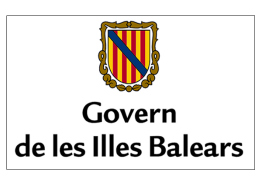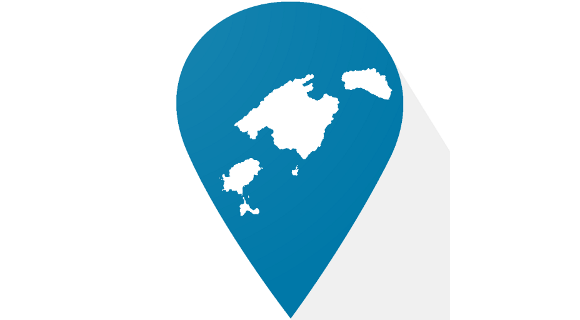The strategy of the Open Data Portal of the Balearic Islands to promote its publication and reuse
Fecha de la noticia: 03-12-2021

2011 was the year in which the Open Data Portal of the Balearic Government was launched, which makes it one of the longest-lived in our country. This portal is focused on the publication of public data of the Govern de les Illes Balears (GOIB) and its instrumental sector, without ruling out future opening options with other administrations such as the island councils and municipalities of the islands.
It currently has almost 350 datasets in its catalog, belonging to various thematic categories. The categories that stand out are tourism, transport, health, environment, public sector and urban planning and infrastructure data.
Clearly defined objectives
The regulatory framework of Open Data in the Balearic Islands is the Law 4/2011, of March 31, on good administration and good governance of the Balearic Islands. For its part, the management of the Open Data Portal and its Catalog depends on the Open Data Team that belongs to the Directorate General of Modernization and Digital Administration, who is also responsible for carrying out the GOIB's open data strategy.
Since its inception, the portal has been increasing its number of datasets, and continues to work to identify information of interest to citizens that can be shared openly. Specifically, its short-term objectives are:
- Analyze which of its data are susceptible to be opened and published in the GOIB Open Data Catalog.
- To open and publish in the GOIB Open Data Catalog the public data managed by the applications of the Government.
- To automate this data opening through the implementation, in each application, of public REST APIs.
- Designate a person in charge of cataloging and publishing data in each GOIB department.
- Define high-value datasets with publication priority.
- To ensure the quality of open data.
Among its objectives is also the promotion of the use and exploitation of open data.
Data that is reused to generate social good
As of today, the portal shows, as an example, 13 cases of reuse of its open data: 9 of these cases are from the GOIB itself - such as this COVID-19 data viewer or this visualization that shows the debt per inhabitant - and 4 are from private companies - such as the Maritium website, with information on the state of the sea or Tourism and Leisure Mallorca-.
The impact of the portal's data is monitored and shown through various indicators in the portal's dashboard. Among the most used datasets are:
- Tourist accommodations in Mallorca
- Tourist Housing in Mallorca
- Data COVID-19 Confirmed Cases by municipalities of the Balearic Islands
- COVID-19 Positivized Laboratory Data of the Balearic Islands
The first two are also among the most downloaded, along with semiautomatic defibrillators (DESA) and Pharmaceutical Alerts of 2018.
To continue promoting the use of this data, from the GOIB they have launched various actions, among which are:
- Training. Training is a key pillar to promote knowledge on open data and its reuse. In this sense, the GOIB has promoted, through the Balearic School of Public Administration (EBAP), a course on electronic administration tools. Among the topics covered in this course are open data and the Open Data Portal of the GOIB.
- Dissemination. Also important are the dissemination actions through events and conferences, such as the Jornades d'Administració Digital that were held before the pandemic. The GOIB's Open Data Portal and Catalog were presented, in addition to the openness work that had been carried out so far.
Next steps: new agreements and tools
The GOIB tells us that their intention is to continue working on the open data strategy, setting new agreements and collaboration protocols, as well as implementing tools to facilitate the management, publication and use of data. Some of the actions to be carried out are:
- Implementation of an ETL tool to extract data from different information sources and have greater flexibility in transforming those data before publishing in the Open Data Catalog.
- Define a technical open data commission to promote the opening of data in each GOIB department.
- Elaboration of a new Government Agreement that consolidates and reinforces this openness.
- Sign a collaboration protocol with associations of the infomediary sector.
- Subscription of the GOIB to the International Open Data Charter.
- Implementation of a Power BI tool that allows internally to graphically exploit the data published in the Open Data Catalog.
All this demonstrates the GOIB's commitment to open data and the promotion of access to information, citizen participation and reuse of public data.














